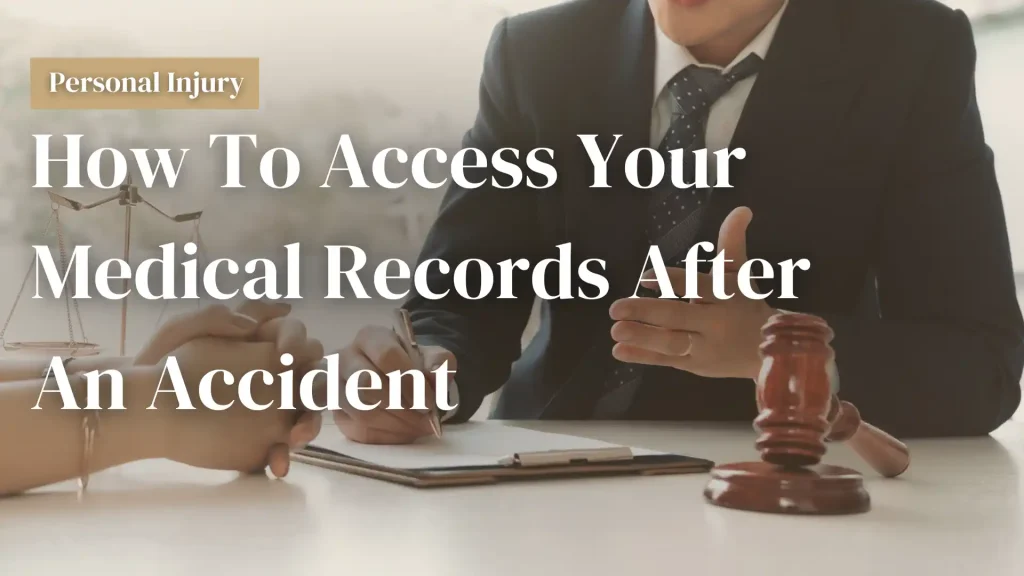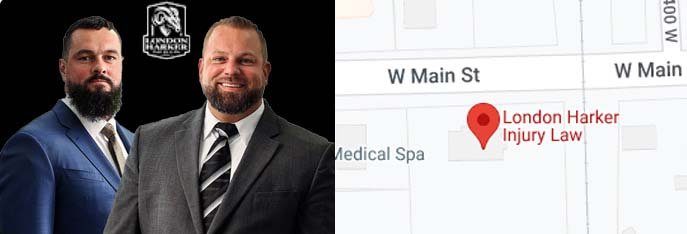Posted on Wednesday, June 12th, 2024 at 9:00 am

If you’ve been injured in an accident in Utah caused by someone else’s wrongdoing, you’ll probably file an insurance claim. To show why you need compensation, you’ll need access to your medical records. Your medical records detail the extent of your injuries and the treatment you received, and they can make a significant difference in the outcome of your case.
Most attorneys will request to see your medical records to form a complete analysis of your case. You can provide the ones you have copies of, but to make a compelling case, you must have copies of all the records concerning your post-accident treatment. If you don’t know the process of securing those records, you may need help. The experienced Sandy and Provo personal injury attorneys at London Harker Injury Law can assist you in sharing that information.
Understanding Release of Medical Records Laws
Access to medical records is restricted. In the United States, the Health Insurance Portability and Accountability Act (HIPAA) sets the federal standards for protecting health information. The Department of Health and Human Services (HHS) outlines your protections under HIPAA. This federal law ensures that your health information remains confidential while allowing you to review and obtain copies of your medical records. HIPAA grants you the right to:
- Access your medical records – You can request to view and obtain copies of your health information from your healthcare provider.
- Correct inaccuracies – You have the right to request that any errors in medical records be corrected.
- Know who has accessed your records – Healthcare providers must keep track of who accesses them and provide you with that information if you request it.
It is essential to have access to these records, particularly if you are seeking to file an insurance claim or sue someone after an accident. Your medical records are strong evidence of your losses.
How to Get Medical Records
The first step in obtaining your medical records is identifying where the relevant records are. Your treatment may have been provided by multiple facilities, doctors, and other specialists. Your hospital, physical therapy center, or other healthcare providers may all have records that pertain to your accident-related injury. Make a list of these providers to streamline the process.
Contact each healthcare provider on your list to request your medical records. Some providers may have specific forms you need to fill out, while others might accept a written request. Either way, be sure your request includes the following contact information:
- Your full name
- Date of birth
- Social Security number (if required)
- Dates of service (when you received treatment)
Complete the authorization forms your healthcare provider requires and pay the applicable fees. HIPAA gives you the right to access your records, but providers can charge a reasonable fee for hard copies. It is possible that you could access some of your records digitally. Healthcare providers cannot charge you simply for viewing your records.
Fees vary depending on the healthcare provider, the number of records requested, and the format of the copies. Utah law outlines the fees providers are allowed to charge along with the amount of time they’re allowed to respond to requests. While HIPAA and Utah law allow healthcare providers to charge a reasonable fee for providing copies of medical records, the charges cannot be egregious. If the client is organized, they can reduce costs in these ways:
-
- Request only the necessary records.
- Inquire about electronic copies.
- Ask about fee waivers or reductions.
- Get help from your attorney.
The medical records will detail the harm you experienced. Financial compensation is often dependent on the extent of your injuries and the duration of the healing period.
Can a Lawyer Get My Medical Records Without My Consent?
Many accident victims are concerned that an attorney can access their medical records without their consent. They cannot. Under the Health Insurance Portability and Accountability Act of 1996 (HIPAA) and state laws, a lawyer cannot access your medical records without your authorization. This is true, even if there are court orders requiring you to do so. However, once you hire an attorney to represent you in a personal injury claim, you must sign a release form allowing them to obtain your medical records on your behalf.
The release you sign will advise that they should provide the attorney with medical records only for particular dates. When you define the time period, you’ll prevent the lawyer from obtaining all the documents that the facility has about any treatment you’ve ever received there.
Should you agree with an attorney’s request for medical records? Your attorney will handle the medical requests once you authorize them to access the records. Experienced personal injury attorneys know precisely which records are needed and how to obtain them efficiently. Attorneys can also interpret medical records and use them to strengthen your claim.
Navigating Federal and State Laws

While HIPAA provides a federal guideline for getting your medical records, individual state laws may also affect the process. In Utah, state laws work alongside HIPAA to ensure that you have access to your medical records. A skilled personal injury attorney will have experience obtaining access to their client’s medical records and can handle this task for you.
Following some basic guidelines when accessing your medical records can help make the process as efficient as possible.
-
-
- Be specific about which records you need to avoid receiving (and paying for) unnecessary documents.
- Keep records of all communications with healthcare providers.
- Follow up if you don’t receive your records within the expected timeframe.
- Seek legal assistance if you encounter difficulties obtaining your records.
-
Hire an Experienced Personal Injury Attorney from London Harker Injury Law
Still don’t know how to get medical records after an accident? Obtaining your medical records during your personal injury claim is necessary. Knowing the laws that apply to the release of your medical records can help you limit your lawyer’s (and the at-fault party’s lawyer’s) access to records they don’t need. Knowing what the fair charges are for producing hard-copy documents allows you to keep a handle on your costs.
Remember, you have the right to access your medical records, and a skilled attorney in Utah can handle the process efficiently on your behalf. Call the Sandy and Provo personal injury lawyers of London Harker Injury Law at 77CARCRASH. Contact us online if you have any questions or need assistance from our team of lawyers.



